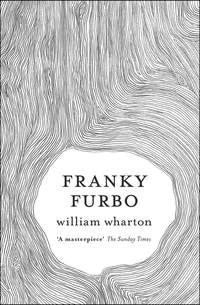
Полная версия
Scumbler
We have coffee, then a cognac. The concierge – her name is Blanche – is turned on. She’s about ready to lock both of us between those skinny thighs of hers. Probably be wonderful. Ben Franklin knew what he was talking about; one of my all-time heroes. He was seventy years old when the Revolutionary War started, and they couldn’t’ve won it without him. But he never fired a shot. I wonder what kind of pictures Ben’d’ve painted if he’d turned his fantastic mind that way?
LOST BODIES, LOVING SOULS:
WE SPRING FROM NOW TO WHERE
BELLS TOLL FOR THE LIVING.
The painting’s standing out there in the sunshine alone. There’s maybe an hour more before the light shifts. Light’s important when I’m leaning into impasto. This time of year I can’t afford to let any light get away; I’m running out of time no matter how fast I run.
I go out. My American and the concierge stay in the café and talk; his name is Matthew, calls himself Matt. I get by without telling my name.
I work madly. I want to paint in the rough impasto, then let it dry a few days. Afterward, I’ll work on glazes, scumbling and accent some lights. Painting has a rhythm of its own; I just follow it. I’m only a man chasing after a magic Pied Piper who’s playing haunting tunes, tunes I can just barely hear.
A TINGLING, CLANKING OF MULTICOLORED WHITE;
THE COWBELL RINGING OF MOURNING IN THE NIGHT.
An hour later I stop. The American’s standing behind me; he could’ve been there all the time; he invites me to lunch. I’m beat but I say OK. I’m beginning to think he’s one of those rich Americans playing hooky in Paris, checking out French language, French cooking, French living, French loving, French potatoes, French dry cleaning.
We eat in a little friterie around the corner. I’ve never tried this place before. It’s good, cheap. We feast on aubergines, pork, wine and tart for twenty-two francs. I find out he’s not rich; poor, living on less than a hundred and fifty bucks a month. He’s in a fifteen-franc-a-day hotel; does without heat to save a franc; that’s rock bottom. He’s studying at the Sorbonne; doing a master’s about some 1870 Socialist named Jean Jaurès. To live, he teaches English to French businessmen at IBM.
We begin talking motorcycles. He has a 1950 Ariel; now that’s a truly vintage bike. He takes me up onto the Place Saint-Sulpice to see it. It’s covered with a black tarp. We unwrap and this bike’s beautiful enough to bring on tears. A good well-cared-for thought-out machine like that is a delight. I’d love to paint just one painting as perfect as this machine. We check oil, set magneto and turn her over. Two kicks and a lovely deep sound.
He bought it from a woman in Versailles for only five hundred francs. It’d been sitting on blocks in a garage for twenty-five years. She’d talked her husband out of driving it thirty years ago because it was too dangerous. He died ten years later of diabetes.
It’s marked in miles and has a grand total of 6,021. There are saddlebags and two old-style helmets. I guess the old guy even thought he’d get his wife to ride with him sometimes. There’s a high-mounted back seat so a passenger can see over the driver’s head. In those days riding a motorcycle was supposed to be a pleasure.
He takes me for a nice, slow tour around the Place; I’m sitting up high with a great view, no helmet. Matt says he never goes over thirty; in no hurry at all. It’s rare to find a young person, especially a man, so smart about those things. If you go fast, you can’t see anything; if you can’t see anything, why go? We park the bike, carefully cover it again and shake hands.
A RACE THROUGH LIFE. QUICK
GATHERING OF FOOD, SHELTER,
WIFE, CHILDREN: ALL THE SPACES
CLUTTERED: SOME FACES, A BITE OF
SONG. ONE LONG LAST TRICK.
I’m late. I pack my paints and drop in at Lotte’s, just around the corner. I need to fix her heater. It’s an electric job, the kind that heats oil in a radiator; gives fine heat but expensive, big electric bills. I always keep a tool kit in my bike. I unpack it, go through the courtyard on Mabillon and into her place.
Lotte’s not happy. I was supposed to eat lunch with her today and forgot. I could kick myself. She’s an Austrian woman and can really cook. She gets great food from home, like weisswurst and stollen.
Lotte’s very quiet, wears mostly black; about thirty-five, teaches German at a French lycée. Smart woman, sensitive; loves paintings, one of those people you have in mind when you paint, someone to paint to, like my Kate.
I met her in the street; she stood behind me the way the American did today. She has quiet eyes, Egyptian eyes, green. She tells me, in French, how she likes my painting. I start playing ‘mad artist’. There’s something challenging in her old-maid look. She listens. I spread more crapola in my personal, fractured French. I’m romancing; definitely not seducing. Most people don’t understand the difference. One’s for fun, the other’s serious business, distinctly not for clowns like me. She nods and looks into my eyes.
‘You may speak in English.’
Not much accent. I’m painting in front of Chardin’s house on the Rue Princesse, just up from where I worked today, nearer Rue Canettes.
I enjoy feeling the lonely master Chardin peering over my shoulder while I’m painting in that street. He lived at number 13. It sort of kills time, talking to a lovely young woman and having him there too. It sort of kills time not in the meaning of wasting it but really killing it, making the seeming reality of it go away.
I invite her for a cup of coffee. She says no, leaves. I figure that’s the end of it; just as well, back to work: balancing light, space, the illusion of objects. I’m communing with Jean-Baptiste Chardin, an almost ignored master in his time.
LEVELING TIME, MY MENTAL SHOVEL
LABORS TIGHT BETWEEN GOD AND DEVIL.
I’m just packing up my box, dead tired, when she comes back, invites me for a cup of coffee at her place. I’m out of the painting enough now to catch the great overwhelming black waves of sadness she’s giving off. I follow. Am I being seduced? No, it’s mutual induction like electric current. Probably nobody’s ever really seduced or seduces anybody. Seduces are only excuses.
Her place is a little attic room on the Rue Buci, two streets away. The room is neat as a pin; clean, more Austrian than French. There are two beds and a small room cut off for a kitchen; john’s in the kitchen, curtained off. Old building, thick walls, sun coming in through a window, flowers in the window.
We eat some tasty home-baked cakes with coffee. She makes good coffee, not instant: filtered. We talk about Chardin, reincarnation, death, vibrations. This is a serious woman, nothing of sex here at all. I can relax, just enjoy.
Then we’re talking about something else – I don’t remember what – and she’s crying. Just like that, from talking to crying, no bridges.
TEARS BURIED IN EACH
OF US; WELLING UP UNBIDDEN.
TO TAP THIS SOURCE IS, FOR
ME, THE LAST RESOURCE.
My motherly juices begin flowing. I move my chair closer, take her in my arms. She fades into me, cries harder, sobbing now. Says she’s sorry, been walking around all day trying not to think, working on some painless way to kill herself. My maternal glands are in full operation, but I’m wary. I’ve been fooled by too many women with this ‘kill myself’ business, but this time it’s important; this woman wants tender, loving care: love, not sex. I hold on and let her cry. I’m running out of even simple ordinary love lately, and there’s hardly enough sex left to fill a hummingbird’s nest.
Finally, she pushes away. She goes into the kitchen and comes back with more cakes. She’s beginning to watch me as if I might jump up and rape her.
There’s not much experience with trust here. She sits down and begins telling how she has to get out of this place. The French guy she’s been living with is kicking her out; that’s why she’s going to kill herself; not so much losing her apartment but the Frenchman dumping her like that. She really cares, still thinks she loves him.
I start feeling sorry. Here’s a nice domestic mother type with no man and now no nest either. I feel like a pig with all my places, all my family. I tell her about one nest I’ve got. It’s not far from where she is now. I can let her have it for seven hundred francs a month; that’s less than she’s paying the Frenchman. This place has terrific potential; I’ve been using it as a studio sometimes, a place to store my box when I’m painting over here. It’s not quite finished, but I can whip it into shape in a week.
I found this space last fall when I was painting in a courtyard off the Rue Mabillon. It’s on a deep court; you actually go through almost like a tunnel and come out in the court, away from traffic noises. In back is an ébéniste, Monsieur Moro. I painted the inside of his shop on a large, 50P canvas. Painted it like a still life: all the saws and lathes and equipment quiet in the feeling of wood. I’d come home nights smelling almost as much of wood and sawdust as I did of turpentine. Kate asked if I’d given up painting and taken to carpenter work. Could be; my dad was a carpenter.
I talk a lot with Monsieur Moro. He’s a peculiar character; lives alone; part queer but doesn’t like it. His wife divorced him ten years ago. She’s remarried, has children. He goes Sundays to play with her kids; another natural mother with the wrong plumbing. I try to tell him about my good friend Ben Franklin who was such a fine mother, but he doesn’t understand.
Moro has a huge room where he stores wood; he hardly uses this space at all. I talk him into letting me build a mezzanine storage deal for his wood, then close off the underneath part. I tell him I’ll rent that bottom section from him for two hundred francs a month. After a lot of wiggling and niggling he agrees and I cut myself out that space, build him a staircase using his great tools.
The space I hack out has its own door and windows along one side. The building’s an old carriage house for the church of Saint-Germain-des-Prés. I get fifty square meters; it’s only two meters high but a great location, right on the rez-de-chaussée, opening directly onto the courtyard.
I find an old stove and fridge. I build in a toilet with one of those garbage-disposal units to grind the shit and paper so it can go out a water pipe. I put in a portable shower and buy a used chauffe-eau water heater. I find the oil-electric space heater at a flea market in Montreuil for eighty francs. My whole investment is under four hundred bucks. I could probably rent this hole for a thousand francs. I’m letting her have it at seven hundred. Lord, I need a keeper.
I’m a sucker for damsels in distress; I should learn to distrust distress. Getting involved in other people’s distress only leads to stress for me and stress is probably what’s going to kill me in the long run; or short.
I MUDDLE IN OTHER PEOPLE’s
PUDDLES, THEN FIND IT’S ALL
ONE BIG, LONESOME OCEAN.
Lotte moves in the next week. She does appreciate the place, a true homemaker. I begin going over once in a while for lunch. She loves to cook and is good at it. She plays a little harpsichord, plays it well, a real artist. There’s no sex or even vibrations. We’re like brother and sister or father and daughter.
That Frenchman made a big mistake; this is a natural wife. I think she’d make a great mother, too, only she doesn’t want to. Says she wouldn’t bring anybody into this mean, vicious world; people dangling nuclear bombs in the air, underground and in the oceans.
That’s the kind of talk breaks this old Scumbler heart. What the hell else is there except life? Sure we have to be afraid of the crazies with the bomb, fight them with all we’ve got; but we’ve also got to love and be loved, or we’ll get to be like them. They don’t know about love, so they don’t know how to fear; that’s the real trouble.
I fix the heater. Oil’s leaking out one of the elements. Lotte warms up the meal I missed. I don’t have the heart to tell her I’ve already eaten. I can always eat anyway; should probably be a fat guy, might be one yet if I live long enough. The painting knocks five pounds off me every day. I come home nights sweating as if I’ve been running a marathon. It takes two showers a day just for people to be able to live near me.
We finish off with Steinhager and Bauern shenken. Then I sit under the pale, struggling spring sun falling softly through her window while she plays and sings a few of those German lieder. It’s healing time for my beat-up, turpentine-shriveled, Y-chromosome-cursed soul.
PUTTING TOGETHER AGAIN WEATHERED
WOOD, RUSTED NAILS, PITTED STONE,
TO BUILD ANEW THIS DWELLING CALLED
ME. PERHAPS A CAVE – OR A TREE HOUSE?
4
Riding Easy
Today, still sunny, cold. I paint more on the Rue Princesse ébéniste painting. There’s good light in the morning but it starts falling off by noon. I get some glazing in, some scumbling on the walls and over the door. My American comes while I’m working. His last name is Sweik, better name, more a cat name. We have lunch at the same place, then go up to his room for a nip of Grand Marnier.
This is some room; falling-down, peeling-faced hotel: Hôtel Isis. There are long, dark halls, no lights. The steps used to have rugs but they’re all torn up; catch your feet in rug strings; smell of dust when you trip. Burlap bags are tacked on the walls and ceiling to catch falling plaster; these are hanging, sagging bulges full of broken plaster.
Sweik’s room’s on the second floor. And this is a great room: light; looks out on the street. His fireplace is blocked, plastered up. There’s a double bed on one side, sink in the corner, collapsible bidet under the sink. The green wallpaper has twisting, crawling flowers with stains running down; there’s a big beam across the center of the room, small light hanging from the beam. Terrific place, something to paint. I can definitely leave the planet through this room, free-fly in my mind.
The sun comes out again. I sit in the window, back to sun; sip Grand Marnier from a miniature bottle; tingling taste of oranges on a cold day in the sunshine. There are sounds of people walking below. I look out his window into Madame Boyer’s café-charbon across the street. Sun comes deep into Sweik’s room. I’ll paint it from the window looking in, inside, enclosed, with air at my back; then from the door looking out the window, a rabbit view from his burrow into free light.
His old-time motorcycle saddlebags, helmets are hanging by the door. They’re brown leather and well oiled. Sweik says he keeps his clothes in those saddlebags. There’s nothing of his spread around the room; all very neat, cat; says he only has enough stuff to fill those bags, nothing extra. Heavenly beans, so different from the way I live: my guts, my life spread all over the landscape.
The walls are covered with drawings, charts of French political history, some Goya bullfight prints. Sweik says he likes bullfights. I can’t make it myself, nerves won’t stand it; wind up feeling sorry for everybody, despising them at the same time; rips me up.
Sweik says it’ll be OK for me to paint his room. He’ll leave the key under his doormat, he’s gone most of the day. I make arrangements for tomorrow. I’m hot, bubbling to get into this; drink, suck this room into me; make it real, my real, stop it from changing. We also agree to get together with some friends of Sweik’s that night; go to the Bastille and look at motorcycles. Probably Kate won’t want to come but she won’t mind my going. Kate and I have a lot in common but our pleasures are different.
SIMULTANEOUS ALTERING;
ON THE ALTAR FOR WHAT?
We meet at Sweik’s place around nine o’clock. Most of the motorcycles in Paris cruise to the Bastille on Friday nights; everybody checking everybody else out. Motorcycle cops are sitting around waiting for trouble. There are some old bikes; and even more crazy people. It’s the ultimate macho machine orgy.
I meet rare individuals at Sweik’s. One’s named Lubar, Brooklyn Jew married to and separated from a French lawyer; he runs English classes for the French at IBM. Sweik works with him. Another, Tompkins, is a physicist-poet; brings a woman friend named Donna along. He’s here on a grant from Berkeley, supposed to be working at the Sorbonne in solid-state physics but spends all his time writing poetry. Duncan, a tall, thin man, has a Triumph 500 and doesn’t say much. Lubar has a BMW 750. Tompkins is riding on the back of Lubar’s bike. Donna on Duncan’s.
Sweik gets his machine from up on the Place and we tune it in front of his hotel on the Rue Guisarde. This makes an awful racket with the close walls. A man throws water out his third-story window; can’t blame him. I turn off my bike. Lubar pees on the side of the wall; yells up in street French, no Brooklyn accent. The man throws out a pail of hot water this time. Lubar is drenched; laughing, he starts a jig in the street singing a song about a fucking machine – in English, thank God. More people come out, laugh at Lubar, who’s putting on a show.
Finally, we roar off, down to the river and over onto the Right Bank and along the quais. We’re not going fast, only riding easy on a coolish springlike night. Sweik and I bring up the rear; my tired 160 sounds like an organ grinder and I’m the monkey.
THE SWELLING OF DECAY, A SPONGY
POROUSNESS, FESTERING AS A BLIGHT;
BLISTERING INCANDESCENCE OUT OF SIGHT.
We hang around the Bastille an hour or so; there are some handsome machines. There’s a new Kawasaki, and more cross bikes every time. Some leather-covered character offers Sweik ten thousand francs for the Ariel. Sweik only smiles, says no, politely. We swing around the Bastille column a few times with the mob. Then head down Roquette to the Rue de Lappe.
We park and work our way into the Belajo, an old-time French dance hall. There are coveys of Algerians and black guys; some tired-looking middle-aged women; a fair sprinkling of whores, both sexes. We find a table under a balcony; the orchestra is up on the balcony.
Donna stops by the women’s room to pee; bike riding joggles kidneys some when you aren’t used to it. Lubar moves an Algerian or Tunisian guy’s coat to make a place for Donna when she comes back. This Arab gets all excited, slams his coat back on the seat. Lubar jumps up and throws the coat onto the floor.
Here we go, we’re off again. The bouncers begin drifting close. Lubar pushes up the sleeve of his jacket and shakes his fist in the Arab’s face. I’m slipping under the table, easing my helmet onto this old bald head. I’m ready to crawl out of there on my hands and knees.
Donna comes back, sits in the chair and smiles. The Arab smiles, backs off, apologizes to Donna as if Lubar doesn’t exist. Everybody settles down; bouncers drift away. Another little dumb male scenario has been worked out. It’s worse than watching belly dancers or bunnies at a Playboy club.
We order beers, start scanning the scene. There are more men than women, about two to one. Most are simple working stiffs, Arabs, other Africans, Spanish, Portuguese; mostly they don’t dance. They’re here in Paris with no women; they come hoping for a contact. Lonesome men, cut off from women, are dangerous.
The music starts again; everybody’s hustling. Lubar’s still looking for a fight. He keeps going up, tapping men on the shoulder, cutting in – that kind of dumbness. A little guy like him, failed athlete, is never finished. He’s liable to wind up growing a short-handled blade between his shoulder blades.
I dance with one woman, almost my age, wearing a wig; stiff-backed type, likes to dip and twirl but keeps pushing me away with her skinny, sinewy arms. There’s a big, oldtime crystal ball going around over the dance floor. It throws lights on the walls and floors in different colors. If you concentrate on the lights, you feel as if you’re turning upside down.
The next one I get pushes her sagging belly into mine. Her breath would burn if you struck a match; blend of booze, garlic and sewer gas. I stagger back to our table.
We stick through two beers. Lubar drags over a pale girl, wearing a tiny miniskirt, with incredibly thin legs; she starts quoting the price structure and we decide to skip the whole deal, too sad. We go out, charge up our bikes again and head for Contrescarpe.
There we check in at Cinq Billards. This is a little café with four good tables. Lubar, Duncan are sharks; they chalk up. Tompkins and Donna watch. Sweik and I play Ping-Pong in back behind a string net. He has a strong forehand, some good spins but an ordinary serve and nothing on the backhand. I keep playing to his bad side and picking up on his serve. I’ve got a sneaky drop serve but no backhand either. We come out even: good games, good fun. Sweik and I are both players, not sportsmen; we laugh too much. And God, I tire out fast; can you imagine, tiring out from Ping-Pong!
DEATH IS A CUP OF COFFEE, OR A DAWN,
OR ORGASM, ALL THE GOOD THAT COMES IN
LIFE, AND THE BAD. THAT’S LIFE, THAT’S
DEATH.
It’s getting late, time for this old man to go home. I drift downhill beside the Jardin des Plantes, past the morgue and Jussieu, the science part of the Sorbonne. It’s where the Halles aux Vins used to be; I think that represents progress. I cut over the bridge across the back of I’lle Saint-Louis and up Henri-IV to the Bastille again. The motorcycles are gone and it’s quiet.
I cruise down Rue Charenton, avoiding the Faubourg Saint-Antoine. I can’t take all the crappy furniture in the windows. It’s a long street pretending things that aren’t and never should be. Poor people walk up and down that street Sundays when the stores are closed; they stare into the windows practically genuflecting.
At the end of Charenton, I see a man lying in the street. He’s under a streetlight with his head propped on the curb. There’s thick blood. I stop. Nobody’s around; it’s quiet. The gutter is full of blood. I yell but nobody opens any windows. I get down; his hands and face are cold, white; there’s no breathing. I jump on my bike and speed up to the Marché Aligre where there’s a police station.
Two flics are standing spread-legged on the corner. I explain. I know I’m getting myself in trouble. One flic surprises me by jumping on back of my bike while the other phones in. We head back to Charenton. When we get there, my flic leans over the poor blood-drained bastard. People are looking out windows now. The flic asks my name and looks at my passport. I figure I’m set for a night in the pokey.
He takes off his cloak and covers the dead one, head and all. It’s a damned nice thing to do; it’s not exactly warm. He says I can take off. He’s written my name, address and passport number in his little notebook. I figure I’ll hear from the cops, but don’t; you never know in France.
I roll the few blocks home. The door’s locked but I have a key. I try to slip into bed quietly. No good. I wake up Kate and snuggle against her. It feels great, spoon tucking, warm body, warm bed feeling. There’s nothing better than sleeping wrapped up with a wife. It’s awful to be dead out there on a street like that, nobody even opening a window to peek out.
Kate rolls over, loks at me just as I’m drifting into sleep.
‘Dear, you really can’t stay up late like this and get your work done. It’s almost three o’clock and it doesn’t make sense. You’re not a kid anymore, you know.’
I don’t feel much like answering but Kate deserves to know.
‘Yeah, you’re right, I know; but sometimes a painter works without a brush in his hand, Kate.’
It’s quiet, I should leave it there. I’ve sworn I’ll never argue with anyone, especially with Kate. Everybody loses every argument. But I’m so upset by that dead man in the street I can’t keep my mouth shut. Mostly I want to tell her, to spread out my fear.
‘On the way home, I found a corpse stretched out in the Rue Charenton. I called the police, and that flic even got on my bike with me and rode back. I thought for a while there I might spend the night in the hoosegow. You know, Kate, I’d’ve called you if something like that happened.’







